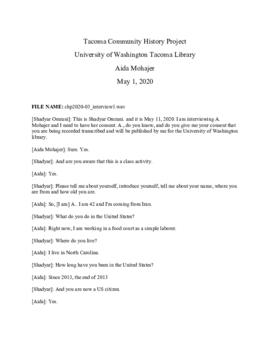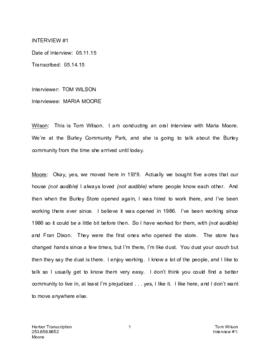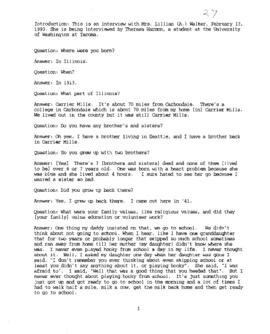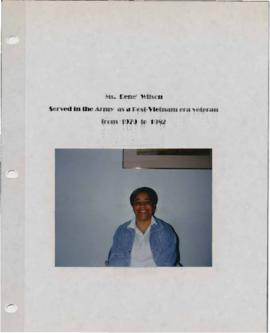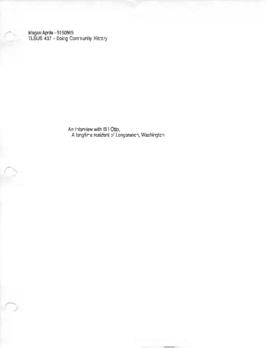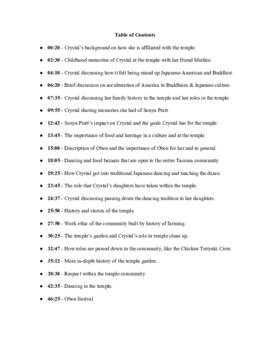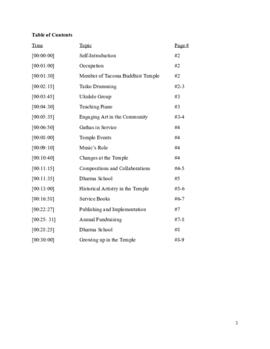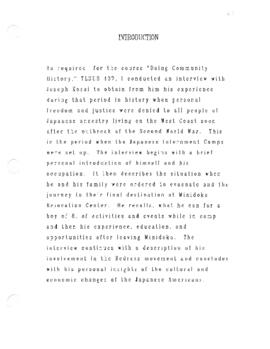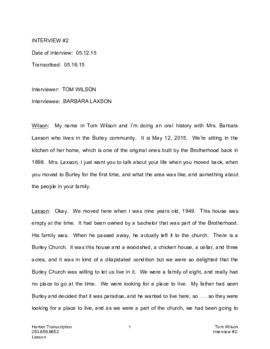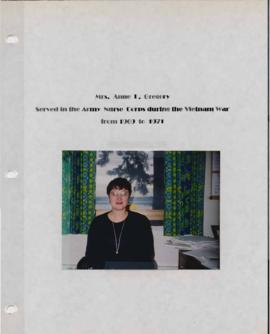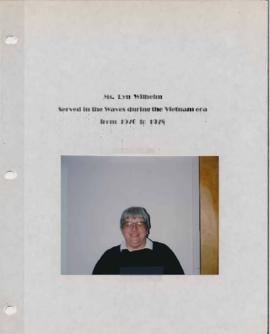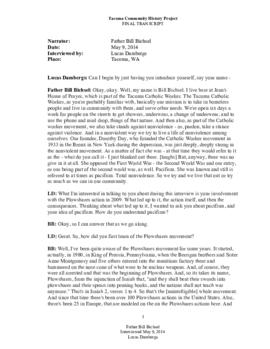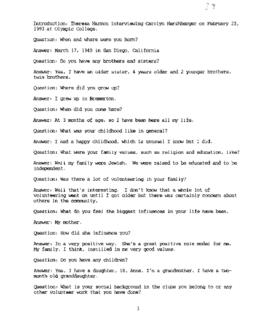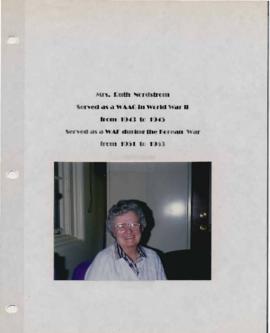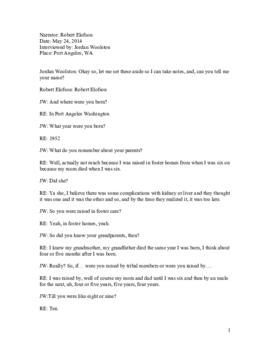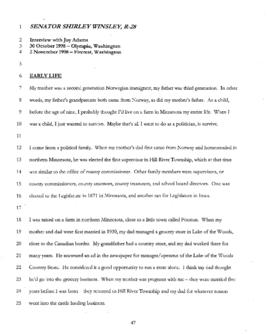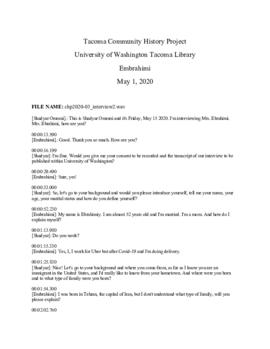Showing 230 results
Collections153 results with digital objects Show results with digital objects
American Lake Veterans Affairs Medical Center
- File
- 1993
Oral history interviews with Ruth B. Nordstrom, Anne L. Gregory, Lyn Wilhelm, and Rene Z. Wilson by Crystal Graham conducted February-March 1993. Four female veterans reflect on their military careers and share their connections to the Veterans Affairs Medical Center at American Lake. Ruth Nordstrom, a long-time volunteer at American Lake, describes her time as an office clerk for WAAC (Womens Army Corp) during World War II and for WAF (Women in the Air Force) during the Korean War. Anne Gregory, a psychiatric nurse, talks about her experiences in Vietnam as a member of the Army Nurse Corps. Linda Wilhelm, a resident of the domiciliary, discusses her service time in the US Navy during the Vietnam era and describes some of the difficulties she faced as a gay woman in the military. Ren Wilson, a former domiciliary resident, recounts the high and low points of her Army career and talks about the social barriers she encountered as an African-American female officer. All interviewees comment on how the VA can better serve female veterans.
- Series
A Brief Study of Land Use by Indian and Pioneer Communities on the Key Peninsula
- Item
- 1991
Oral history interview with Bill Otto by Megan Aprile conducted 05/06/1991. The interview discusses Bill Otto's family and German heritage, his work in the lumber industry and as a family farmer. He also describes childhood activities in Longbranch, Washington, including playing baseball on a championship youth league baseball team in Pierce County.
- Series
Why Internment? The Story of Japanese-Americans During World War II
- Item
- 1991
Oral history interview with Joseph Kosai by Arlene Mihara conducted 04/19/1991. The interview recounts Joseph Kosai's personal experiences as a Japanese American citizen forced to evacuate his Tacoma, Washington residence on May 18, 1942 in response to the issuing of Executive Order 9066. Joseph, who was eight at the time, was transported with family members, first, to an assembly center in Pinedale, California, then to Tule Lake, where Kosai's extended family was dispersed and sent to different camps. Joseph, his mother, and younger sister were sent to the Minidoka Relocation Center in Idaho, where they would remain until May 17, 1945. In the interview, Kosai recalls his impressions of life in the internment camp. He also describes his readjustment after being released from Minidoka, as well as the impact of discrimination upon his subsequent educational and career opportunities. He also discusses his involvement in the national redress movement and other civil rights issues.
The Burley Community: Preserving the Past
- File
- 2015
Oral history interviews with Maria Moore and Barbara Laxson by Tom Wilson conducted 05/11/2015, 05/12/2015. The Burley Utopian Community was part of the growing Social Equity Movement of the latter part of the 19th and early part of the 20th centuries. The origin of the idea of seeding the United States with Socialist Communities came from an organization led by Eugene V Debs. Debs was a veteran of the labor troubles that gripped the nation beginning in the 1880's and culminated with the deaths of thirteen workers during the Pullman Strike. Debs began to believe that the only hope for the workingman was Socialism. With that in mind the national Socialist organization looked for opportunities to spread the Socialism, Washington State was selected as the site of the colony, chosen because of its history of labor activism and a smaller population that would be sympathetic to the cause. Thus was born the town/colony of Brotherhood, a name that was soon surrendered for the commonly used, Burley. Plagued with troubles from the onset, the colony lasted only 15 years. This is story of a community that has survived, not so much physically, but in spirit, a spirit that still holds this small community together today. That spirit can be seen in the words of Barbara Laxson who is a longtime resident who lives in one of the original homes built by the colony where an oral history was recorded. It can also be heard in the words of Maria Moore, an American citizen born in Mexico who lives now in Burley. Mrs. Moore, is a former member of the Burley Community Association the group that is charged with maintaining the community properties, her interview was conducted in the community park. In their words you can begin to understand why it is so important to try to keep and keep the history and the name Burley alive today.
Father Bill Bichsel and Disarm Now Plowshares
- Item
- 2014
Oral history interview with Bill Bichsel by Lucas Dambergs conducted 05/09/2014. Father Bill Bischel discusses his life as a Jesuit priest, as well as joining a tradition of radical Catholic non-violent activism. A particular focus is paid to his role in the Disarm Now Plowshares action where he, and four others, broke into the Bangor Trident nuclear submarine base near Bremerton, Washington, to symbolically disarm nuclear weapons stored there.
The Slavic Fishermen of the Puget Sound
- Item
- 1991
Oral history interviews with Nick and Rose Tarabochia by Penny M. Tennison conducted 05/29/1991. The joint interview with married couple, Nick and Rose Tarabochia, covers their family life and early struggles to earn a living and raise a family during the Depression. Among the topics discussed by Nick Tarabochia are: his childhood in Brookville, Washington, the life of a fisherman in the Pacific Northwest (including a consideration of purse seine fishing versus gill netting), and Native American fishing rights. Subjects covered by Rose Tarabochia include: her upbringing, her self-reliance as a fisherman's wife, and her real estate acumen.
The History of the Kitsap County Young Women's Christian Association
- File
- 1993
Oral history interviews with Lillian Allen Walker and Carolyn Hershberger by Theresa Harmon conducted 02/1993. Two longtime members of the Kitsap County YWCA share the history of their organization, tracing its evolution from a wartime social club to a community outreach task force. The Lillian Walker interview focuses on the organizations early years, as well as Walkers civil rights activities. The Carolyn Hershberger interview covers the establishment of the ALIVE (Alternatives to Living In a Violent Environment) program and its merger with the Kitsap YWCA in the late 1970s.
- Series
Robert Elofson: The Lower Elwha Klallam and the Return of Their River
- Item
- 2014
Oral history interview with Robert Elofson by Jordan Woolston conducted 05/24/2014. Robert Elofson discusses his early life being raised outside the Lower Elwa KlallamTribe in foster homes, his college years earning a double bachelors degree in physics and biology at Western Washington University and his involvement in the Western Washington Native American Student Union. This led to him being the first fisheries biologist for the Lower Elwah and his involvement in the Elwha dam removal and restoration of the Elwha river ecosystem. The original sound recording of the interview is not included.
Then and Now: Women Legislators in Washington State
- File
- 1998
Oral history interviews with Shirley J. Winsley and Lorraine Wojahn by Joy Adams conducted October-November 1998. Washington State Senators Shirley Winsley and Lorraine Wojahn discuss their decade-spanning political careers and comment on trends and shifts in American politics.
Engaging Tacoma Buddhism: Acculturation at the Tacoma Buddhism Temple
- File
- 2019
Oral history interviews with Crystal Inge, Mikyoko Kanda, and Donna Sasaki by Connor Peterson, Yina Finch, and Megan Packer conducted 04/16/2019, 04/28/2019, 04/30/2019. In April of 2019, a Pacific Lutheran University Religion 393 class set out to interview members of the Tacoma Buddhist Temple with the purpose to study the acculturation of religion and the ways that the role of religion in the Tacoma community has changed overtime. The class was broken down into three groups of 3-4 students each in order to interview Miyoko Kanda, Donna Sasaki and Crystal Inge, who are all members of the Tacoma Buddhist Temple. Each person was interviewed in order to glean more information about the time period they were most active in and specific questions regarding temple culture. This project was initiated with the intent to preserve the different perspectives of the members mentioned above through oral history as an ongoing project to collect and archive oral histories of relevant members of Tacoma from its foundation to present day.
- Series
- File
- 2020
Oral history interviews with Aida Mohajer and Ebrahimi by Shadyar Omrani conducted 05/01/2020. Since COVID-19 started to become a global pandemic, it has caused personal and public traumas. Increase in unemployment rate, bankruptcy of small businesses, financial stress to the middle and working-class and the closure of many businesses which relied on peopleΓÇÖs social activities, including the gig industry, tourism industry and restaurants, are additional traumas to the issues of health and life threats people face by the contingency of the virus. By the end of May 2020, more than 2 million Americans were confirmed COVID-19 positive, 113 thousand of whom could not survive. Amongst the most affected populations, the people of color, especially Black Americans and immigrants have been suffering most. This research focuses on immigrant working women from the Middle East, whose life journeys are filled in with several traumas, some intensified during the pandemic. This paper provides two oral history records of two Iranian American working mothers, Aida Mohajer and Mrs. Ebrahimi, who carry historical traumas experienced in two different countries with two different cultures, i.e. Iran, and the USA. The intervieweesΓÇÖ stories show how the experience of trauma is related to the social class and what imposed social factors beyond choice can determine the class and different approaches to traumas.
- Series
